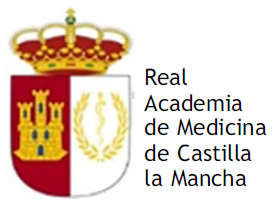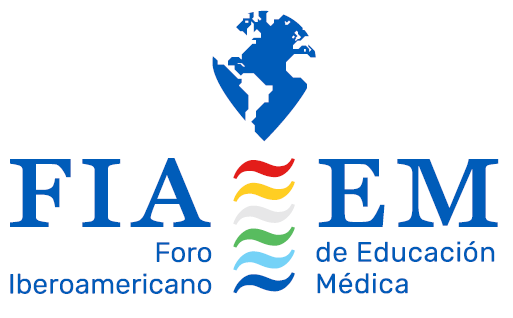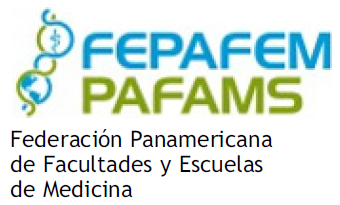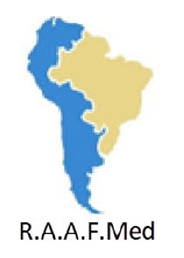We evaluated whether an eminently theoretical undergraduate teaching of neurology includes adequate training to perform neurological differential diagnoses.
MethodsIn 2023, 165 students received theoretical and practical hospital classes. They had the option of continuous evaluation, and as part of it, the final exercise, conducted after the theoretical exam, involved creating a list of differential diagnoses for a patient presenting with dysphagia+dysarthria+diplopia. The responses were evaluated by comparing them with a "gold-standard” (the result of the same exercise performed by 5 experienced neurologists), and these results were compared with the theoretical grade.
Results61 students participated. To analyze the relationship between the exercise grade and the theoretical exam, we used the Pearson correlation coefficient, which yielded a result of 0.052 (p=.690).
ConclusionOur data suggest that an eminently theoretical undergraduate education may not be adequate for acquiring skills in neurological differential diagnosis.
evaluamos si en una enseñanza pregrado eminentemente teórica de la neurología se incluye un adecuado adiestramiento para realizar diagnósticos diferenciales neurológicos.
Métodosen 2023, 165 alumnos recibieron clases teóricas y prácticas de hospital; se les ofrecía también evaluación continua. De esta, el último ejercicio, realizado tras el examen teórico, consistía en elaborar una lista de diagnósticos diferenciales ante un paciente con disfagia + disartria +diplopía. Se evaluaron las respuestas comparándoles con un “gold standard” (el resultado del mismo ejercicio realizado por cinco neurólogos experimentados), y se compararon estos resultados con la nota teórica.
Resultadosparticiparon 61 alumnos. Para analizar la relación entre la calificación del ejercicio y del examen teórico se usó el coeficiente de correlación de Pearson, que arrojó un resultado de 0.052 (p = 0.690).
Conclusiónnuestros datos sugieren que una enseñanza pregrado eminentemente teórica puede no ser adecuada para adquirir habilidades en el diagnóstico diferencial neurológico.
Neurological differential diagnosis requires both medical knowledge and logic application.1 It's a learning process emphasized during neurology residency but not always in undergraduate education, which could enhance general doctors' diagnostic skills and reduce neurophobia.2 Our objective is to analyze if our predominantly theoretical teaching with lectures improves students' ability to perform neurological differential diagnoses.
Materials and methodsIn the 2022–2023 academic year, 165 students enrolled in the Faculty of Medicine at Universidad San Pablo CEU (Madrid, Spain). Theoretical classes were given, along with hospital practices; those who chose could also do online continuous evaluation (review topics, exploration videos, etc.). 83 students signed up for continuous evaluation. For them, the last exercise is explained later; they did it after the final theory exam. Of those who passed this exam, a total of 63 did the exercise; however, only 61 answers were valid for analysis. The exercise required developing a differential diagnosis for a patient presenting "dysphagia+dysarthria+diplopia". They had to provide "possible diagnoses suitable for a discharge report". They had 10 min to complete it. To establish a "gold-standard", we performed the same test on 5 active and clinically experienced neurologists. Based on these neurologists' responses, student answers were graded (higher score for more diagnostic matches). Then, these results were compared with those obtained in the final theory exam (maximum score of 10). We used Pearson correlation test and SPSS version 27.
ResultsAverage differential diagnosis score was 3.6 (1–8); average theory exam score was 7.6 (5.2–9.2). We do not find a correlation between the 2 scores. Pearson correlation coefficient: 0.052 (p=.690).
DiscussionNeurophobia is combated with knowledge,1,3 but this will inevitably be limited in undergraduate education. A uniform teaching, where students are not given contradictory information from different teachers or different subjects, and where the principles of anamnesis, exploration, localization, and differential diagnosis (in that order) are followed, will better equip them to make correct diagnoses.3 Focusing on differential diagnosis, it is also crucial to "build bridges" between the different topics of the subject so that they can interrelate when proposing a differential diagnosis. We need general practitioners with a strong foundation in neurological differential diagnosis, because given the existing gap between the number of patients with neurological pathology and the percentage of physicians who will specialize in neurology, it is necessary to select which patients will go to specialized consultations, and many will need to be diagnosed and treated in general practice settings. Our data suggest that better theoretical grades were not associated with better neurological differential diagnosis skills. Despite important limitations, such as online format bias and selecting only students who chose continuous evaluation, methodology used herein provides reasonable evidence that warrants concern; mere theoretical classes are insufficient; pre-graduate students should be specifically trained in neurological diagnostic differentiation processes from early stages of their education.








